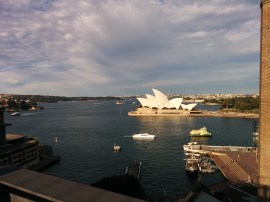I find this video very helpful in untangling the origins of Russia:
A few observations:
1) Russians often say they never had a Renaissance because they were busy protecting Western Europe from the Mongol hordes. The latter part of the video above describes what was happening in the East during the Renaissance.
2) Russians say that their suffering under the “Tartar Yoke” was a disaster. The Mongols were certainly blood thirsty, but as described in this video they had an upside of bringing order and prosperity (President Xi probably finds this idea inspirational).
3) The Normanist v anti Normanist controversy raged in Russia in the eighteenth century and blew up again in the USSR after WW2. I think it has had another lease of life after the invasion of Ukraine. I believe it is basically an argument about how much influence Germanic peoples had in the development of Slavic nations.
This is a summary of the Normanist controversy:
4) one of the belligerents in the Normanist v anti Normanist battle was Mikhail Lomonosov. He is hardly known in the West, but all Russian schoolchildren would know him as an intellectual giant. He was a biggie in many fields, including Science and Linguistics. I suppose he was a “Renaissance Man”, except they didn’t have a Renaissance. Here is a potted bio of him:
